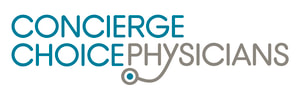Concierge Physicians and the Good Doctor:
How membership medicine is old-school medicine
|
A touching tribute from a journalist to the physician who saved her life as a teenager was printed in the Wall Street Journal not long ago. The article, titled “The Endangered Good Doctor,” discussed the life of Dr. Burton Lee, a renowned oncologist who was famous for his clinical approach with patients. He treated the journalist when she was diagnosed with Hodgkin’s disease, and continued to
treat her until he passed. Dr. Lee approached his cases by getting to know the patient as a whole. He felt that a human connection was essential to curing disease. Dr. Lee’s very personal style of medicine is described as “endangered.” And yet, there are many physicians who still believe in the doctor/patient relationship and work hard to carve out the time for face-to-face patient interaction amid the current culture of depersonalized medicine, and ever-increasing mandates. We cannot underestimate the calling of medical service. Many doctors and nurses see themselves as life support to patients, who are often at their most vulnerable when they come to visit. Despite doctor shortages and increasing demands, doctors still want to practice medicine in the old-fashioned, highly personalized style. Patients still want that kind of treatment and support from their doctor, which is how concierge medicine came to be. Concierge medicine gives doctors the time to reassure, hold hands, make a few extra phone calls, personally review lab tests, and answer patient and family questions. This kind of attention and care is not reimbursable by Medicare or any other insurance, but it is invaluable to families, particularly those who are suffering from a chronic condition or seeing multiple providers. It’s also invaluable to today’s physicians, many of whom work under extreme pressure. Declining reimbursements, increasing overhead and physician shortages have forced physicians to increase their pace and see more patients. Concierge medicine takes that pressure away for patients and physicians. Doctors with concierge practices collect a membership fee from patients, allowing them to see fewer patients each day and, therefore, to take their time. Patients get the support they need, and physicians get to practice a highly satisfying, relaxed form of medicine. |
As a concierge physician nears retirement, their career is extended because the financial burden is eliminated, and their pace is manageable. The patients they treat trust and value their physician’s counsel. The only pressure concierge physicians feel is to find a suitable replacement who will treat their patients with the same dedication, care and support they provide.
Concierge medicine has been around for more than 20 years. It has continued to increase in popularity, particularly in this last year. The pandemic has proven to medical consumers that there is no substitute for a physician who knows them, and whom they trust. We survey thousands of patients annually to understand what they value as members in their physician’s concierge program. The stories we have amassed from patients whose lives were saved by the personal approach of their physician are endless. There is no greater satisfaction for a physician than to hear that patients are “beyond grateful” for the care and attention they provide, or they are an “angel sent from heaven to bless their life.” The additional revenue that a physician earns in concierge medicine is what makes this kind of time and attention possible. But the physician’s personal satisfaction exists outside of the money—it’s an answer to a calling that is constantly being threatened in today’s high-pressure healthcare marketplace. Concierge medicine allows doctors to play the supportive role that Dr. Lee played in the journalist’s life—counseling her not just on health, but on life choices, with passion and conviction, like a trusted friend and confidant. The “good doctor” is not endangered, it’s been reinvented. LEARN MORE: If you’d like to learn more about concierge medicine, or if you’d like information on partnership opportunities with concierge physicians nearing retirement, contact: Michele McCambridge, CCP SVP, at [email protected] or call (877) 888-5590 |



